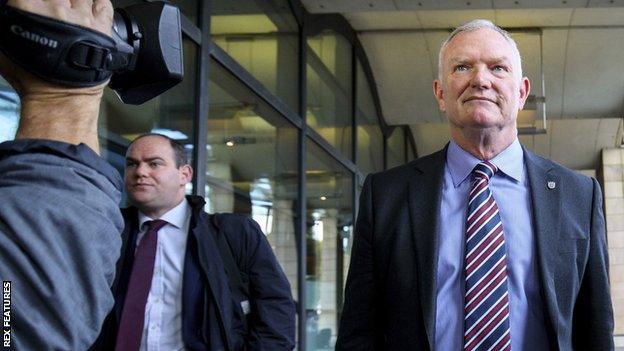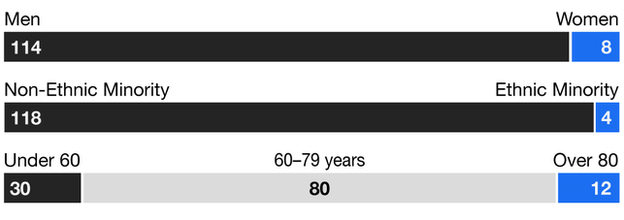FA reform: Proposals announced following criticism of its governance
- Published

FA chairman Greg Clarke has vowed to resign if his plans for reform are not backed by the government
More women will be appointed to the Football Association's board as part of proposed reforms revealed on Monday after criticism over the way it is run.
In December, five ex-FA bosses asked the government to intervene and change an organisation they described as being held back by "elderly white men".
In February, MPs with "no confidence" the FA would reform itself warned they could legislate to force it to.
Only one woman sits on the current 12-member FA board - Heather Rabbatts.
The FA's proposed reforms seek to:
Establish three positions on the FA board reserved for female members by 2018
Reduce the size of the board to 10 members
Add 11 new members to the FA Council so it "better reflects the inclusive and diverse nature of English football"
Limit board membership to three periods of three years
Introduce term limits for FA Council membership
The reforms still have to be approved by the FA Council, which will debate and vote on the recommendations on Monday, 3 April.
If they receive majority approval they will be taken forward to a vote of the shareholders at the FA's Annual General Meeting on 18 May.
Sports Minister Tracey Crouch has said the FA could lose £30m-£40m of public funding if it does not modernise.
FA chairman Greg Clarke reiterated that he will quit if the plans for reform do not win government support.
"This is a transformational leap forward and if the government don't accept this, I'm not sure what else we can do," he told BBC Sport on Monday.
"If government don't want to accept it, who am I to argue but, of course, I will resign."
BBC Radio 5 live sports news correspondent Richard Conway asked Clarke why there were no plans for dedicated black, Asian and minority ethnic background representation on the proposed new 10-member board.
Clarke replied: "What I would like to see is a path to make sure that not only are we gender diverse but ethnically diverse. What I don't want this to be is empty words.
"I want to find a way to achieve it and be accountable. I just need a bit more time to get there.
"It's really important that the FA is representative to society. Throughout the business world, diverse boards make better decisions. I think that's true in football too."
The FA is effectively run by its own parliament, the FA Council, which has 122 members. Just eight are women and only four are from ethnic minorities. More than 90 of the 122 members are aged over 60.

Only eight of the 122 members of the FA Council are women
- Attribution
- Published6 March 2017

- Published6 March 2017
